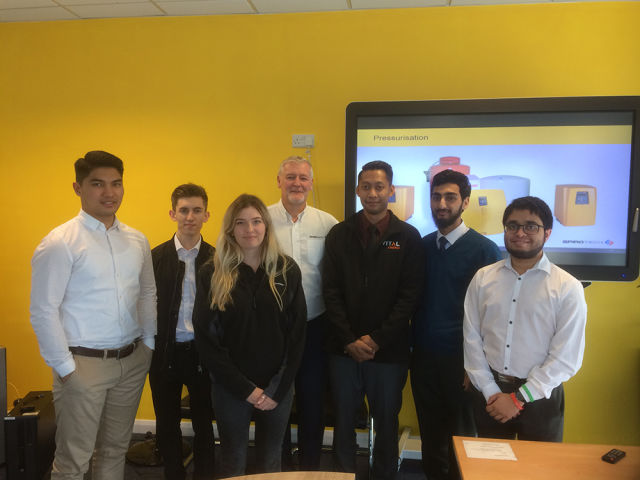Spirotech training gains accreditation

Spirotech’s HVAC system training courses have received approval from the Chartered Institution of Building Services Engineers. The courses focus on water conditioning and system protection and have proved popular with engineers.
The two CIBSE- accredited courses are Deaeration and Dirt Separation Techniques and Understanding Pressurisation Design, Installation and Implementation. They highlight the importance of removing air and dirt from a heating system to maximise its performance and save energy.
Rob Jacques (pictured with a group of trainees), national key accounts and technical sales manager for Spirotech UK, says: “We want to ensure that Spirotech leaves no stone unturned in educating the market on the importance of treating both dirt and air within a heating system, whilst offering our expertise on the best methods and product types to achieve this.”
He adds: “A big issue for the industry currently is managing your carbon footprint. Ensuring there is good quality system water, free of air and debris, will go a long way towards maintaining the intended efficiency of the heating system, thereby supporting designers, installers and building owners to achieve their carbon reduction targets.”







